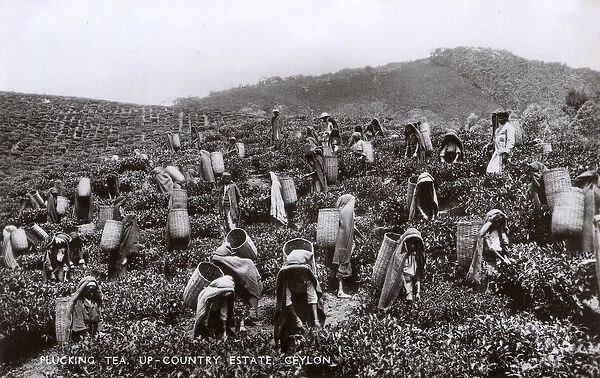Sri Lankan Ceylon Tea: The Bright, Citrusy Brew Gaining Global Wellness Fans in 2025
Introduction to Sri Lankan Ceylon Tea
Sri Lankan Ceylon Tea, renowned for its bright and citrusy flavor profile, has been a staple in the global tea market for decades. Originating from the lush highlands of Sri Lanka, formerly known as Ceylon, this tea has carved a niche among tea connoisseurs and wellness enthusiasts alike. In 2025, its popularity is surging worldwide, driven by a growing interest in natural, health-promoting beverages.
The unique climate and terrain of Sri Lanka contribute to the distinctive taste of Ceylon Tea, making it a refreshing choice for those seeking both flavor and wellness benefits. This blog explores the origins, characteristics, health advantages, and global rise of this beloved brew.

The History and Origin of Ceylon Tea
Ceylon Tea’s story begins in the 19th century when tea cultivation was introduced to Sri Lanka by British colonialists. The island’s mountainous regions, with their rich soil and ideal rainfall, proved perfect for tea growing. Today, Sri Lanka is one of the world’s largest tea exporters, with Ceylon Tea recognized globally for its quality and flavor.
The name "Ceylon Tea" is protected by geographical indication, ensuring that only tea grown in Sri Lanka can bear this prestigious label. This heritage adds to the tea’s authenticity and appeal.
- Key regions: Nuwara Eliya, Uva, Dimbula, and Kandy
- Climate: Tropical with distinct wet and dry seasons
- Altitude: High elevations contribute to flavor complexity

Distinctive Flavor Profile: Bright and Citrusy
What sets Ceylon Tea apart is its bright, lively taste with a natural citrusy note. This flavor is often described as brisk and refreshing, making it an excellent choice for both hot and iced tea preparations. The citrus undertones come from the unique terroir of Sri Lanka’s tea-growing regions, influenced by altitude, soil, and climate.
Tea experts often note the following flavor characteristics:
- Light to medium body
- Bright amber color when brewed
- Distinct citrus hints reminiscent of lemon or orange peel
- Clean, crisp finish
These qualities make Ceylon Tea a versatile base for blends and flavored teas, as well as a standalone brew cherished by purists.

Health Benefits Driving Global Wellness Trends
In 2025, wellness trends continue to favor natural, antioxidant-rich beverages, and Ceylon Tea fits perfectly into this category. Rich in polyphenols and flavonoids, it offers several health benefits:
- Antioxidant properties: Helps combat oxidative stress and supports immune health
- Heart health: May improve cholesterol levels and promote cardiovascular wellness
- Mental alertness: Contains caffeine and L-theanine for balanced energy and focus
- Weight management: Supports metabolism and fat oxidation when combined with a healthy lifestyle
Moreover, Ceylon Tea is naturally low in calories and free from additives, aligning with clean-label preferences among health-conscious consumers.

How to Brew the Perfect Cup of Ceylon Tea
To fully appreciate the bright, citrusy notes of Ceylon Tea, proper brewing is essential. Here are expert tips to get the best flavor:
- Water temperature: Use freshly boiled water around 95-100°C (203-212°F)
- Tea quantity: Use 1 teaspoon of loose leaf tea per 8 oz (240 ml) of water
- Steeping time: Steep for 3-5 minutes depending on desired strength
- Serving suggestions: Enjoy plain, or with a slice of lemon to enhance citrus notes; milk is optional but less common
For iced tea lovers, brew a strong batch, cool it, and serve over ice with fresh mint or citrus slices for a refreshing drink.

Global Market Growth and Consumer Trends in 2025
The global demand for Ceylon Tea is rising steadily, fueled by increasing awareness of its health benefits and unique flavor. Wellness-focused consumers in North America, Europe, and Asia are driving this growth, seeking authentic, natural teas.
Key market trends include:
- Premiumization: Consumers willing to pay more for high-quality, single-origin teas
- Sustainability: Demand for ethically sourced and environmentally friendly tea production
- Innovation: New blends and ready-to-drink Ceylon Tea beverages entering the market
Leading Sri Lankan tea exporters and brands are leveraging digital platforms and e-commerce to reach global audiences, while certifications like Fair Trade and Organic add value.

Where to Buy Authentic Sri Lankan Ceylon Tea
Finding genuine Ceylon Tea is easier than ever with numerous options available online and in specialty stores. Here are some trusted sources:
- Official Sri Lankan tea exporters: Companies like Dilmah and Mlesna offer authentic products with traceability
- Specialty tea shops: Many urban tea boutiques stock premium Ceylon Tea varieties
- Online marketplaces: Platforms like Amazon and specialty tea websites provide customer reviews and detailed product descriptions
When purchasing, look for the "Pure Ceylon Tea" logo and check for certifications to ensure authenticity and quality.

Here’s to savoring every vibrant sip and embracing the wellness journey that Sri Lankan Ceylon tea inspires.
-Hot Water
Comments
Post a Comment